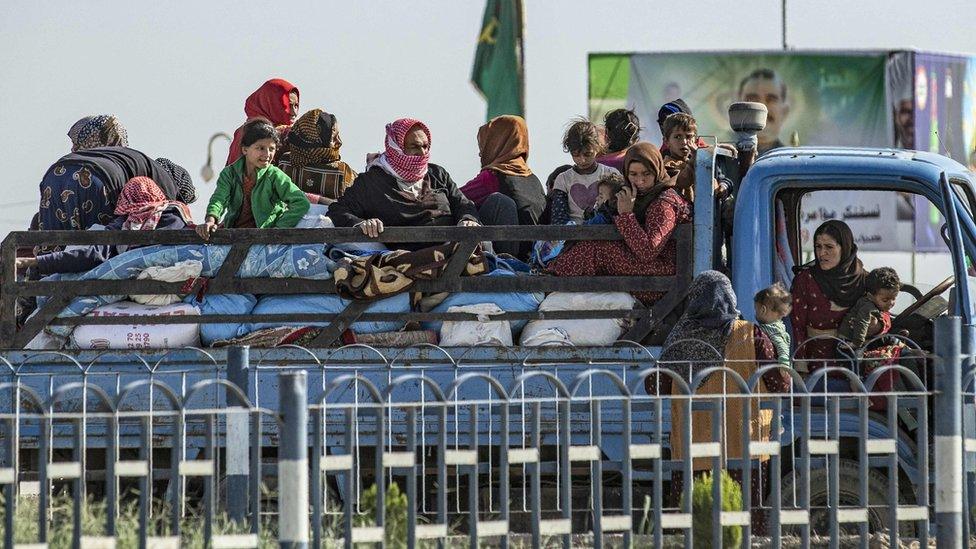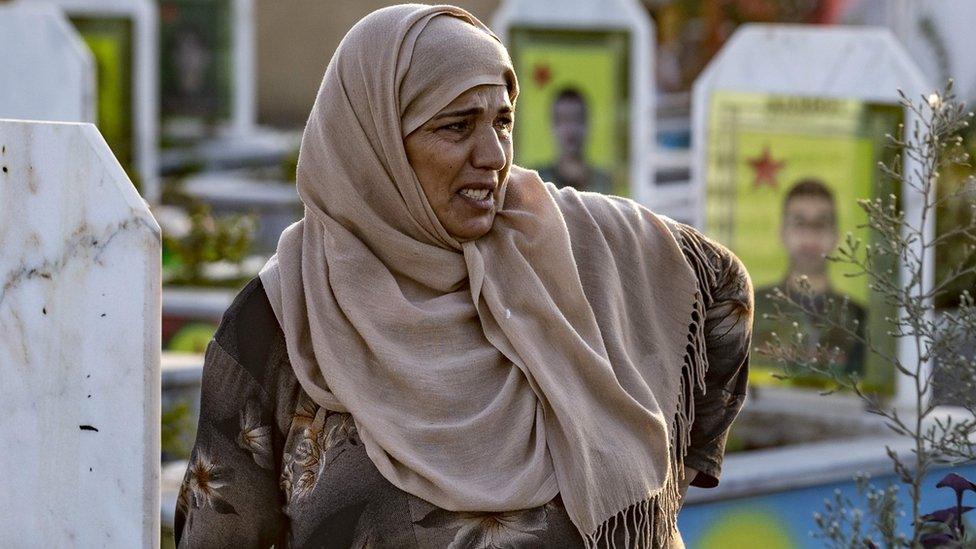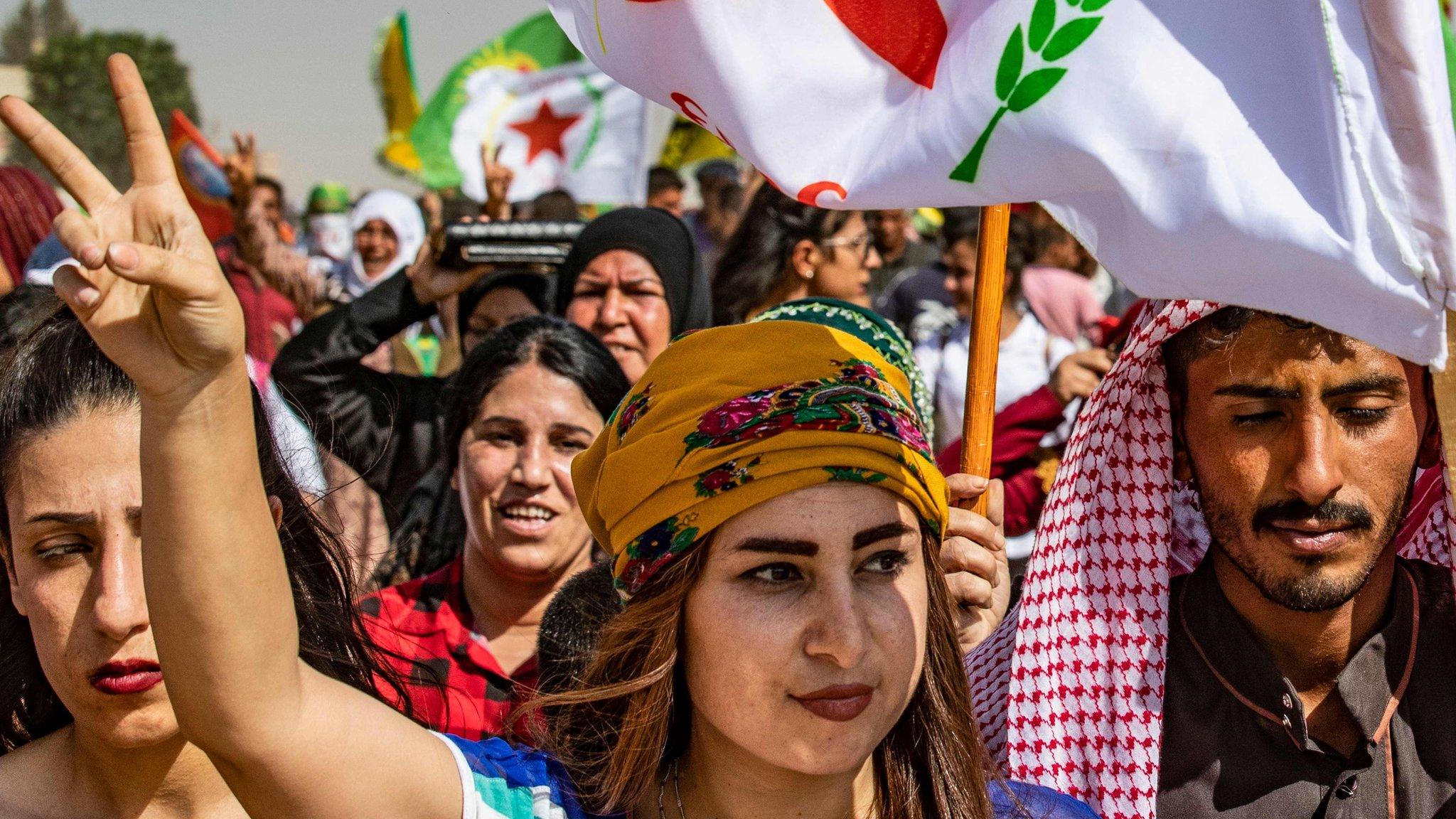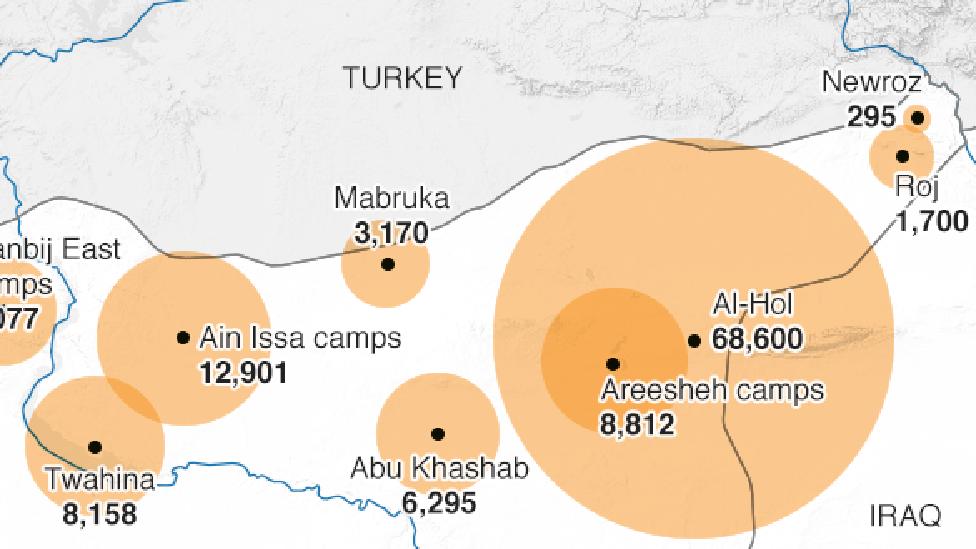Turkey-Syria offensive: UK government halts arms export licences to Turkey
- Published

The UK will continue selling arms to Turkey but will not grant new export licences for weapons which might be used in military operations in Syria, the foreign secretary has said.
Dominic Raab told the Commons the UK would keep its exports to Turkey under "very careful and continual review".
The Turkish offensive, which began last week, aims to push Kurdish-led forces from the border region.
Dozens of civilians have been killed in the operation so far.
Meanwhile, at least 160,000 have fled the area, according to the UN.
The Turkish government wants to create a "safe zone" in the area, where it can resettle as many as two million Syrian refugees currently in Turkey.
Mr Raab told MPs the UK government had called on Turkey to "exercise maximum restraint and to bring an end to this unilateral military action".
"This is not the action we expected from an ally," he said.
"It is reckless, it is counter-productive and it plays straight into the hands of Russia and indeed the [Syrian President] Assad regime."
He went on: "I can tell the House that no further export licences to Turkey for items which might be used in military operations in Syria will be granted while we conduct that review."
It does not mean all UK arms sales to Turkey are suspended - exports can continue under existing licence.
But it does bring the UK into line with other European powers which have already said they will block future arms deals.
European and Nato allies, including Germany, which is one of Turkey's main arms suppliers, and France have made similar moves.
The UK has licensed sales of military equipment to Turkey worth more than £1bn since 2013, according to the Campaign Against the Arms Trade.
Amnesty International UK said it was the "right decision" but should go further.
Policy head Allan Hogarth said: "The government must be clear that this will also apply to all existing licences.
"The UK has a responsibility to minimise the risk of UK weaponry contributing to violations of international humanitarian law."
The BBC spoke to British orphans found trapped in an IS camp in Syria
Earlier, Nato Secretary General Jens Stoltenberg discussed the volatile situation in Syria with Prime Minister Boris Johnson in Downing Street.
Speaking after the meeting, Mr Stoltenberg said the arms suspensions showed "many Nato allies are very critical and are condemning the military operation in northern Syria".
He added that he was concerned about how Turkey's actions could escalate tensions in the region, cause "human suffering" and threaten the gains made in "fighting our common enemy" - the Islamic State group.
Concerns have been raised for the future of some British orphans identified as being held in camps in Syria because their parents were supporters of, or fighters in, the so-called Islamic State group.
Mr Raab said he did not want to see foreign Islamic State fighters returned to the UK but minors and orphans would be considered.
- Published15 October 2019

- Published23 October 2019

- Published14 October 2019
